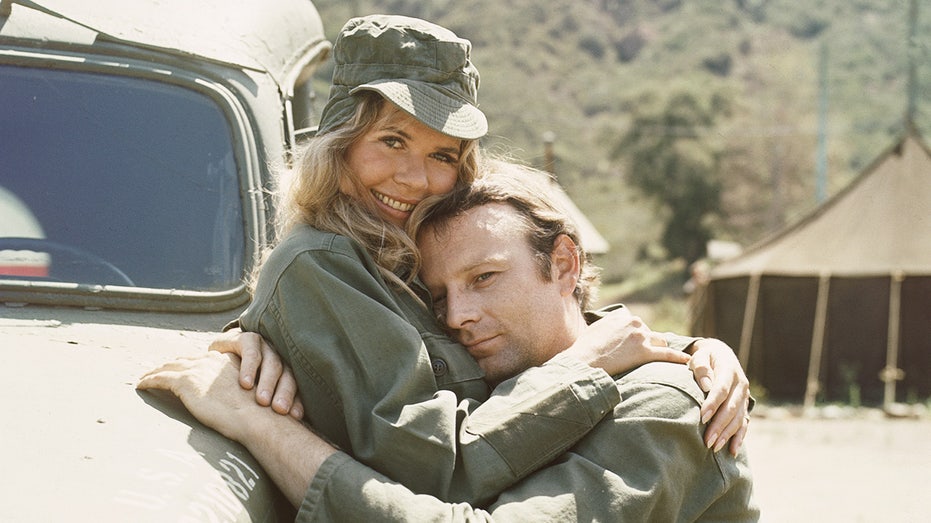"M*A*S*H" star Loretta Swit explains why she disliked 'Hot Lips' nickname: 'It was never a comfort zone'
“M*A*S*H" was based on the 1968 novel by Ricard Hooker, which led to the 1970 film by the same name. The series, set during the Korean War, aired from 1972 to 1983.

When it came to her character in "M*A*S*H," there was one thing Loretta Swit was eager to cool down.
The actress, who played Major Margaret "Hot Lips" Houlihan in the series, told Fox News Digital she wasn’t crazy about her character’s nickname, one that has stuck decades later.
"I understand nicknames come with great love and admiration for a character," the star explained. "But it was an insult as far as I was concerned. She wasn’t just a piece of anatomy. She was a major in the United States Army, and she should not be disrespected."
ON THIS DAY IN HISTORY, FEB. 28, 1983, 'M*A*S*H' FINALE DRAWS RECORD TV AUDIENCE OF OVER 100 MILLION
"This was a woman who had rank, who worked hard and wanted to be good at her job," Swit shared. "She was an inspiration. I was proud of her. I was proud to represent all the servicewomen out there. I wanted to make a change."
Swit said she was also proud of being part of the celebrated sitcom, so much so she was worried the nickname would overshadow the heroic efforts of real-life servicewomen, belittling them to a punchline.
"I didn’t want those women to be disrespected," Swit reflected. "Obviously, people are going to see it differently. Margaret did not see [the nickname] as a compliment. She saw it as disrespect. So, yes, I would say it was never a comfort zone."
Today, the Emmy winner continues to connect with fans at appearances across the country. She also released a new fragrance, SwitHeart, which supports the SwitHeart Animal Alliance nonprofit.
Looking back, Swit admitted she even approached the writers of the show to phase out "Hot Lips."
"I think my perseverance probably became very annoying," she chuckled. "But I felt it was important for the women out there who were supporting our country. I kept telling the writers, ‘She’s so much more than this.’"
CLICK HERE TO SIGN UP FOR THE ENTERTAINMENT NEWSLETTER
"M*A*S*H" was based on the 1968 novel by Richard Hooker, which led to the 1970 film by the same name. The series, set during the Korean War, aired from 1972 to 1983. The finale was watched in over 60% of U.S. homes.
Swit still receives letters from veterans. Many also flock to her appearances. Those encounters, she said, made her fight to ditch the "Hot Lips" title worth it.
"I worked for a long time with World War II vets and got to know them really well," she explained. "It made you realize how much work we needed to do in this country to support them. So many of them came back to a life that was foreign to them. It took them a long time to grasp the situation. They endured so much and many faced those struggles in silence. It has been the honor of my life to help get their stories out there.
"It has been a privilege, an honor, to meet so many of these wonderful heroes – they’re still my heroes," she explained. "The very fact that a serviceman or woman puts themselves on the front lines and says, ‘I give you my life’ – that’s the ultimate sacrifice. And we just don’t thank them enough. They give their lives to our country. These are the best friends I’ll ever have. And they always deserve our respect.
"I often quote this wonderful thing that I read," she continued. "It’s a statement: ‘What is a veteran? A veteran is someone who at one time in their lives wrote out a blank check made out to the United States of America, giving them the sum of up to and including their life.’ That says it all to me what exactly our servicemen and women do. How could such a statement not make you emotional? It’s a lasting feeling. It’s a feeling that will always stay with me."
Swit said, over the years, she also wanted to raise awareness of "our four-legged friends." SwitHeart Animal Alliance teams up with other organizations to bring military dogs home, reuniting them with their handlers or matching them with a veteran in need of a companion.
"Lots of vets always tell me how much of a difference it has made in their lives to be paired with former military dogs," she explained. "You can’t just bring someone back from war, dump them in the middle of New York City and expect them to react a certain way. Well, the same applies to dogs.
"They too have different memories, different experiences. That’s why they need our support. And, in turn, we can enhance the lives of our veterans looking for a companion. These dogs are rehabilitated and given the confidence they need to become the soul, the eyes, the guidance of someone in need."
Over the years, Swit said, hearing the stories of veterans has "enhanced" her life.
LIKE WHAT YOU’RE READING? CLICK HERE FOR MORE ENTERTAINMENT NEWS
"It gives you such a deep appreciation for our country, for the sacrifices they made, even after they come back home," she said. "It can be difficult to absorb their stories. But they need us. So many of them are misunderstood. And a simple thank-you goes such a long way."
While Swit played an army brat on TV, the role has given her more than fame, she pointed out.
"It introduced me to the real experiences of our servicemen and women," she said. "And I gained so many friends along the way. These friendships will last forever. And that has truly been a gift."


